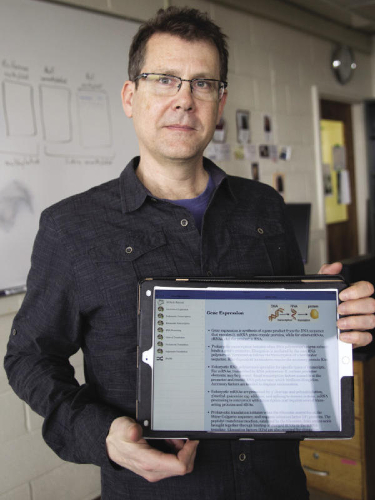On January 26, 2023, Brian Morton, professor of biological sciences, and Barnard student Cindy Ruan ’24 published a new article in the journal Genes, titled “Evidence for Strand Asymmetry in Different Plastid Genomes.” The research closely examines plastid genomes to determine how common it is for there to be a pattern of asymmetry between the leading and lagging strands resulting in opposite skew patterns in the two replicators that lie between the origin and terminus of replication. Previous studies had demonstrated that this pattern exists in eubacteria (so-called true bacteria, which are found mainly in the intestines of vertebrates and in the soil) chromosomes, but it was not known if plastid genomes have the same pattern. The researchers used a random walk approach to examine plastid genomes outside of the land plants (excluded because they are known not to initiate replication at a single site, which is required to generate such a pattern of asymmetry).
The study revealed that asymmetry is detectable in the plastid genome of species from several diverse lineages. Furthermore, the euglenozoa in particular show a strong skew pattern, as do several rhodophytes. These results indicate a weaker pattern in some chlorophytes, but it is not apparent in other lineages. The authors also discuss how the study’s findings can and should influence the way plastid evolution is analyzed.
